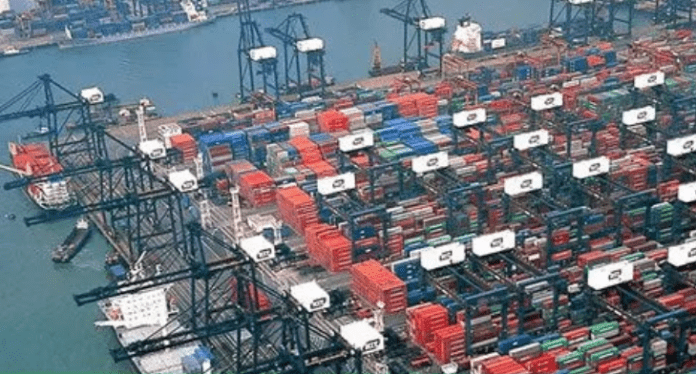The Nigerian Ports Authority (NPA) has undertaken deliberate measures and investments to create a fully digital ecosystem in all the country’s port locations by 2025.
Giving a presentation on his organisation’s “Digitalization Roadmap and Current Information and Communications Technology (ICT) Implementation Status” in Douala, Cameroon, the Acting Managing Director of Nigerian Ports Authority, Mohammed Bello-Koko, said that “a lot of work has gone into the smart port transformation agenda of the authority,” aimed at paperless, time-saving and cost-efficient port operations.
The primary focus of the new strategy is on enterprise computing and heavy dependence on network infrastructure, along with a centralised and shared database. Hence, a five-year plan is now being implemented by NPA to fully achieve a digitalised port system in Nigeria.
NPA said it intends to adopt a phased ICT deployment towards achieving a fully integrated port operating system, in order to foster relationships with all internal and external stakeholders, to streamline NPA’s internal business processes, to make use of high-end smart technologies, as well as to record, monitor and utilise data for better decision making.
So far, according to a statement, the authority has deployed a portfolio of systems and infrastructure towards the actualisation of its ICT objectives, including Oracle Enterprise Business Suite for financial and human resources planning, Billing/Revenue and Invoice Management System (RIMS) to fast-track billing processing, as well as Customer Portal/electronic Ship Entry Notice (eSEN)/Manifest Upload for shipping traffic management.
The ICT objectives also include Hyperion Budgeting for management of annual budget, Command, Control, Communication and Intelligence System (3Ci) for maritime domain awareness and management of vessel calls, and Truck Call Up and Gate Access Control for the control and schedule of trucks to the ports as well as manage truck traffic around the port corridor.
With the international supply chain faces several disruptions, Bello-Koko said the authority will focus on the smartness level of the port than the size of the port in order to optimise productivity and meet the expectations of port users.
“Our goal is to leverage on technology to close the gap between us and the major international ports,” noted Bello-Koko, who went on to add that a digitalised port helps in making better informed operational decisions, increased efficiency, improve collaboration amongst stakeholders, lower port costs and ultimately help to meet the ever increasing customer expectations in a timely manner.
“We are here to have serious discussion on how we can continue to adjust in the face of this unwavering virus and how to plan and operate our ports to meet future challenges. The main aim is to explore diverse ways of using less to achieve more through the use of smart technologies,” stated the President of Port Management Association of West and Central Africa (PMAWCA) and Director General of Ghana Ports and Harbours Authority (GPHA), Micheal Luguje.







